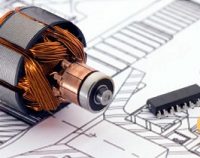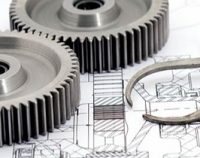New York-Mechanical Engineering Package: 36 PDH
$378.00 Original price was: $378.00.$189.00Current price is: $189.00.
This package satisfies all 36 required hours of professional development.
- 1 hour professional ethics, ref. §68.14 c.1.
- 18 hours of live interactive courses, ref. ref. §68.14 c.3.
- 18 hours of distance education courses, ref. ref. §68.14 c.3.
Webinar: Design for Construction Safety: 1 PDH
This course will provide engineers with information on how to recognize and anticipate construction hazards and how to eliminate them with well thought out design features. This course emphasizes permanent design features that eliminate or reduce the risk to hazards.Read More
Webinar: Ethics for the Practicing Engineer: 1 PDH
In this introductory ethics course the engineer will understand why we study ethics as engineering professionals, ethical theories to use in our ethical decision making, and some tools to identify and resolve ethical conflicts.Read More
Webinar: Administering the Construction Project: 2.5 PDH
In this course we will review the management and administrative procedures that practitioners will need to guide construction projects from the pre-construction phase to project close out successfully. The course will benefit professional engineers serving as project managers or field representatives by presenting techniques that can be applied to the construction project to enhance operations, improve scheduling, mitigate issues, and help minimize and resolve claims or disputes.Read More
Webinar: Infrastructure Planning: 2 PDH
This course presents the main concepts of infrastructure planning in the public sector including the environmental, social, and institutional assessments and discusses many planning methodologies and approaches. The purpose of this course is to provide practitioners involved in planning public infrastructure projects with guidelines to be considered and applied in the planning process.Read More
Webinar: Introduction to Mechanical Components: 1.5 PDH
Along with pumps and valves, reviewed in separate PDH courses, there are many other components that can be found in an industrial/power generation setting. Knowledge of these systems can be useful to any engineer. This online course provides a brief overview of air compressors, hydraulics, boilers, cooling towers, and other components likely to be installed in an industrial or power generation facility.Read More
Webinar: Modern Heat Pumps: 1 PDH
In this course the engineer will be introduced to modern heat pumps and their applications. This introductory course will enable the students to understand the basics of the latest heat pump technologies and how to apply to multiple applications.Read More
Webinar: Diesel Engine Fundamentals: 1.5 PDH
This course provides the engineer the basic understanding of the operation and design of Diesel Engines. The student will learn in depth, the diesel engine operation including an overview of all basic components as well as the different cycles and the operation of all essential systems of modern day diesel engines.Read More
Webinar: Fasteners: 1.5 PDH
This course presents an in-depth look at steel fasteners with focus on structural fasteners, since they are a critical part of most steel structures. A broad range of topics will be discussed including fastener strength, selection criteria, available coatings and testing. This course will go beyond the standards and specifications and provide engineers with helpful background information and practical strategies to mitigate fastener issues and keep projects trouble free.Read More
Webinar: Engineer’s Guide to Green Building: 1 PDH
In this course the student will examine numerous materials and methods to incorporate into a commercial & residential build to make it a green build. This includes understanding of the attributes of green building methods and products and the design and developing considerations for all building & home systems.Read More
Webinar: Engineer’s Guide to Green Building-Part 2: 2 PDH
In this course the student will examine numerous materials and methods to incorporate into a commercial & residential build to make it a green build. This includes understanding of an in-depth examination of all green materials and methods for building green, and a comprehensive green building checklist to review before, during, and after any green build.Read More
Webinar: Storm Shelters & Safe Rooms: 1 PDH
This course presents engineers with important information about the design and construction of community and residential safe rooms that will provide protection during tornado and hurricane events. The course will center around design guides FEMA P-320, P-361, and ICC 500.Read More
Webinar: 2023 NEC Significant Code Changes Part 1: 1 PDH
Part 1 of a multiple part series, this one (1) hour course covers and highlights some of the significant changes and updates in the 2023 Edition of NFPA 70: National Electrical Code (NEC) which was recently updated from the 2020 Edition of NFPA 70: National Electrical Code (NEC). The student will progress through each section of the NEC from the introduction up to Chapter 2 Article 230.Read More
Webinar: 2023 NEC Significant Code Changes Part 2: 1 PDH
Part 2 of a multiple part series, this one (1) hour course covers and highlights some of the significant changes and updates in the 2023 Edition of NFPA 70: National Electrical Code (NEC) which was recently updated from the 2020 Edition of NFPA 70: National Electrical Code (NEC). The student will progress through each section of the NEC from Chapter 2 Article 230 up though all of Chapter 3.Read MoreRead More[/button]
Building Envelope Impact on HVAC Energy Use: 3 PDH
How airtight are the buildings you are responsible for? What is the energy load and indoor air quality like in your buildings? The only way to know is to perform a study. Despite common assumptions, measurements have shown that typical U.S. commercial buildings are not particularly airtight. In this course we present a recent simulation study on the impact of improving envelope airtightness in U.S. commercial buildings. You get documented, verifiable facts, report charts and graphs illustrating the findings, and a discussion from the report on the results of the study, Investigation of the Impact of Commercial Building Envelope Airtightness on HVAC Energy Use.Read MorePreview Course
Chillers, Refrigerant Compressors, and Heating Systems: 5 PDH
This course focuses on the equipment and equipment components used to generate heating and cooling. It does not include fans and pumps. This distinction is clear for most equipment types, such as unit heaters, boilers, and chillers. However, for packaged air-conditioning (AC) equipment the distinction can be subtle. Most packaged AC equipment is treated as a unit by performance rating procedures. Hence, separation of the fans is difficult. For this study, only the refrigerant compressors of packaged equipment are considered. Read MorePreview Course
Design of Small Water Systems: 3 PDH
This course focuses on criteria for water source development, design of small water supply, treatment, and distribution systems. This professional engineer online course is from the U.S. Army Corps of Engineers manual on the Design of Small Water Systems. This manual provides information of interest to planners and designers of small water systems. The major emphasis of this course is on the design of systems that will be effective and reliable, requiring a level of operation and management activity commensurate with their physical size and the available sources.Read MorePreview Course
Fundamentals of Gas Turbine Engines: 5 PDH
This course provides an overview of the development of gas turbines, operational theory, Brayton cycle, conditions and design limitations that affect performance, types of turbine engines and components utilized in a gas turbine engine.Read MorePreview Course
Water Cooled Air Conditioning Systems Part 1: 2 PDH
In this course the student will understand the requirements and best practices for the design, installation and commissioning of cooling tower systems of water cooled air conditioning systems.Read MorePreview Course
Related Courses
Tennessee-Electrical Engineering Package #2: 24 PDH
$144.00Original price was: $144.00.$80.00Current price is: $80.00. Add to cartFive Electrical Engineering courses plus Tennessee Laws, Rules & Ethics course that will earn 24 PDH guaranteed to be accepted by the Tennessee Board of Architectural and Engineering Examiners.Instructor: Juan Pesante, PETennessee – Laws, Rules, and Ethics for Professional Engineers: 3 PDH
In this course the student will study the Tennessee State Board of Architectural and Engineering Laws, Rules & Policies, including Professional Engineering Ethics.
2023 NEC Significant Code Changes Part 1: 4 PDH
Part 1 of a three part series, this four (4) hour course covers and highlights some of the significant changes and updates in the 2023 Edition of NFPA 70: National Electrical Code (NEC) which was recently updated from the 2020 Edition of NFPA 70: National Electrical Code (NEC).
2023 NEC Significant Code Changes Part 2: 4 PDH
Part 2 of a three part series, this four (4) hour course covers and highlights some of the significant changes and updates in the 2023 Edition of NFPA 70: National Electrical Code (NEC) which was recently updated from the 2020 Edition of NFPA 70: National Electrical Code (NEC).
Blockchain Technology Overview: 3 PDH
In this course the student will be introduced to Blockchain technology, from its history and beginnings, through the various components, models, and make-up and finally its applications and limitations.
Electrical Safety: 5 PDH
In this course the student will understand the dangers and hazards when working with or near electrical power and approaches to work safely to avoid serious injury.
Forecasting Solar Radiation and Photovoltaic Power: 5 PDH
Solar resource forecasting is critical for the operation and management of solar power plants and electric grids. In this course the student will understand the basic concepts and various methods of solar irradiance forecasting as well as forecasting the power production of Photovoltaic (PV) power plants.
Preview Course: Tennessee Laws, Rules and Ethics
Preview Course: 2023 NEC Significant Code Changes Part 1
Preview Course: 2023 NEC Significant Code Changes Part 2
Preview Course: Blockchain Technology Overview
Preview Course: Electrical Safety
Preview Course: Forecasting Solar Radiation and Photovoltaic PowerVirginia-Mechanical Engineering Package: 16 PDH
$96.00Original price was: $96.00.$64.00Current price is: $64.00. Add to cartThree Mechanical Engineering courses plus Virginia Laws, Rules, & Ethics course that will earn 16 PDH guaranteed to be accepted by the Virginia APELSCIDLA BoardInstructor: Seth Grablow, PEVirginia – Laws, Rules, and Ethics for Professional Engineers: 3 PDH
In this course the student will study the Virginia State APELSCIDLA Board Laws and Regulations, including Professional Engineering Ethics.
Improving Pumping System Performance: 4 PDH
This course provides a thorough overview of pumping systems and their components and practical guidelines to enhance performance and increase efficiency.
Improving Steam System Performance: 5 PDH
This course provides a thorough overview of steam systems and their components and practical guidelines to enhance performance and increase efficiency.
Improving Compressed Air System Performance: 4 PDH
This course provides a thorough overview of compressed air systems and their components and presents various methods and opportunities to enhance performance and increase efficiency.




